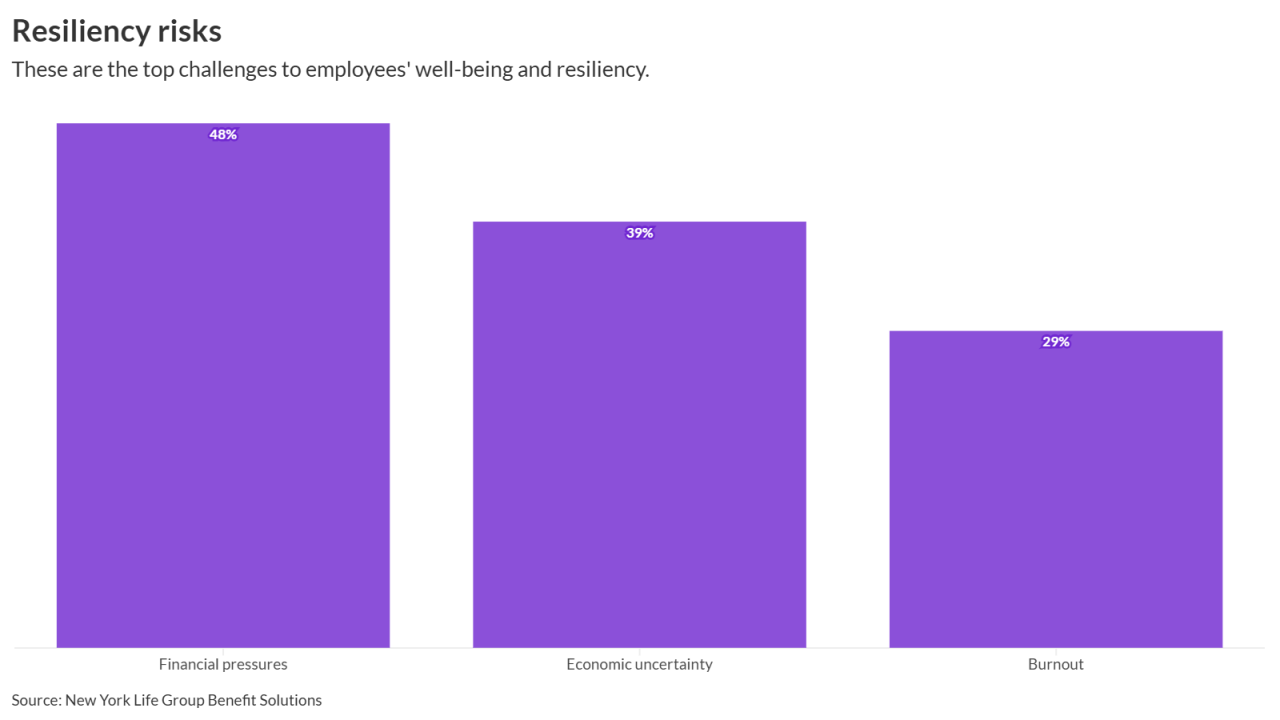The future of diversity,
In January, President Trump signed two executive orders aimed at eliminating DEI offices, programs and mandates, as well as equitable practices and initiatives within federal agencies and private organizations. In the aftermath, organizations are still finding their footing when it comes to how exactly they will respond, but they've made one thing clear: They are committed to
"Employers are making changes that are required, based on the court rulings that are coming out," says Sarah Reynolds, chief marketing officer at HR platform HiBob. "Smart HR leaders know [DEI] is not an on or off switch."
Read more:
Since January 2025, more than 270 DEI jobs have been eliminated across several industries, according to an analysis by Revelio Labs, and the absence of such positions will have trickle down effects. For example, diverse strategies like DEI training, awareness campaigns, blind resume reviews and standardized interview questions — all of which are critical to
Yet only 9% of executives actually plan on scaling back external DEI communications, according to The Conference Board, and just 3% plan to scale back internally. Optimistically, most employers are either
"If there's one piece of this that companies understand, it's that it's much harder to build back trust when you break it than it is to build it and keep it," says Andrea Wood, CEO and president of the Association of Corporate Citizenship Professionals. "These companies have spent a long time investing in community partnerships; dropping them can have reputational damage."
The fight to keep DEI strategies in workplaces is far from over, but here are a few insights into how organizations can take a stance.
Keep tech tools inclusive and equitable
Without the right oversight, tech tools can exacerbate DEI challenges by creating bias and furthering discrimination. However, used correctly, they could prove to be a great way to promote diversity, too.
In 2025, 78% of organizations worldwide — roughly 280 million companies — have reported using AI in at least one business function, according to a recent report from Mckinsey, a 55% increase compared to the previous year. While the integration of new technologies has had a positive impact on the workplace, the current political climate around DEI makes bias a bigger threat than ever before.
"DEI and AI are not mutually exclusive concepts," says Sara Gutierrez, chief science officer at talent management solution SHL. "We have to integrate the two concepts and the key to that is intentionality."
Gutierrez urges organizations shopping around for AI tools to look past marketing language and start asking vendors important questions about how the tool was built, what data it relies on and how it's being tested. Specifically, leaders should be inquiring about where they source their training data, because tools that are trained exclusively on historical hiring outcomes will often replicate those previous biases. Instead, benefit managers should be focusing on tools trained on objective performance data and assessments.
Read more:
Rely on corporate social responsibility efforts
Typically, DEI efforts are considered separate from corporate social responsibility initiatives, which tend to be more broad ventures like employee volunteerism, sustainability and learning and development strategies.
However, according to Andrea Wood, ACCP president and CEO, when Trump signed executive orders to end "radical" and "wasteful" government DEI programs, it also threatened the existence of CSR programs, too. The right strategies — such as using partnerships, community efforts and private funding — could address both issues at the same time and keep necessary programs in place.
"Organizations have put a lot of effort and resources into building their diversity and corporate responsibility strategies," Wood says. "They're staying the course, they're going to continue to do this work and they're not planning to walk away from them any time soon."
Read more:
Try rebranding to keep DEI practices safe
For many organizations, it may be difficult or even impossible not to adhere to the DEI bans and mandates. However, that hasn't stopped certain companies from finding loopholes to get around the rulings and continue their efforts, even if they look a little different.
According to The Conference Board, 53% of executives have already changed their DEI terminology, shying from the acronym for broader concepts like "belonging." And 20% of respondents are considering doing the same thing in the future. Whether or not inclusive efforts are outright referred to as "DEI" won't matter to employees as long as organizations are vocal about their support in the ways that matter, says Reynolds.
"They're saying, 'We want to create an environment where everyone feels safe, recognized and rewarded," she says. "Where we're complying with federal laws that haven't changed around things like equal pay, equal opportunity and non-discrimination."
Read more:





